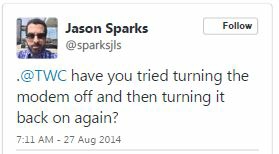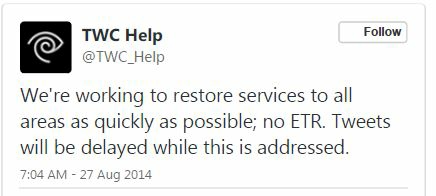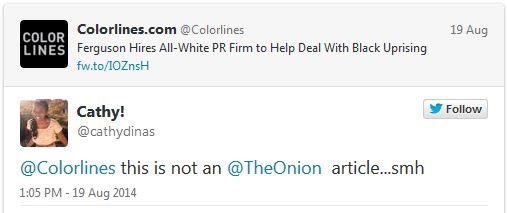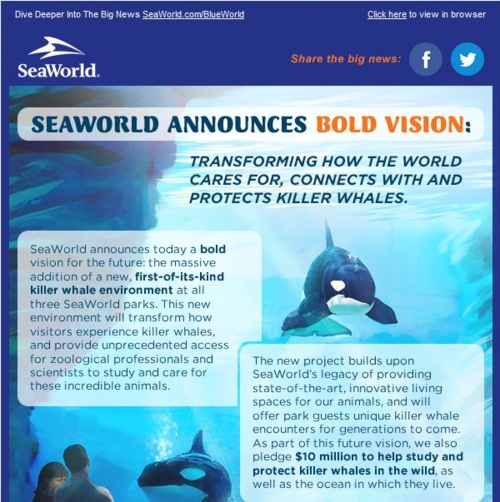Urban Outfitters Offends Again
What could be wrong with selling a blood-splatter-patterned sweatshirt? Urban Outfitters has apologized for putting up for a sale a "vintage" shirt with the Kent State logo. If you missed the history lesson, four students were shot in 1970 at Kent State during a political protest.
Urban Outfitters issued this apology:
"Urban Outfitters sincerely apologizes for any offense our Vintage Kent State Sweatshirt may have caused. It was never our intention to allude to the tragic events that took place at Kent State in 1970 and we are extremely saddened that this item was perceived as such. The one-of-a-kind item was purchased as part of our sun-faded vintage collection. There is no blood on this shirt nor has this item been altered in any way. The red stains are discoloration from the original shade of the shirt and the holes are from natural wear and fray. Again, we deeply regret that this item was perceived negatively and we have removed it immediately from our website to avoid further upset."
Kent State weighed into the controversy as well:
This isn't the first time Urban Outfitters introduced an offensive product. The Week chronicled 12 more.
Discussion Starters:
- Is Urban Outfitters intentionally offending? What are the advantages and disadvantages of this advertising strategy?
- Assess the company's response. Does it meet criteria for an effective apology?
- Discuss Kent State's response. Do you think it was wise for the university to weigh in? Why would administrators issue a statement, and what could be the consequences?
Darden Investor Creates 297-Page PPT Report
Starboard Value, a Darden investor, created an extensive PPT presentation to recommend ways to improve the struggling Olive Garden restaurants. Sales and stock prices have been falling.
Starboard, which owns eight percent of Darden's stock, criticizes Olive Garden harshly. The presentation uses clear, specific message titles, discussed in Chapter 10, and the word choices are direct.
The presentation is a good example of mixing text and graphics in a PowerPoint report.
Discussion Starters:
- Read the message titles across the report. Do you find a cohesive argument?
- Which pages work best, and which could be improved? Assess the balance of text and graphics and how clearly main points are conveyed.
- Assess the strong language. Is this appropriate for the audience? What are the possible consequences?
Microsoft's Indirect Layoff Email
 Microsoft's long layoff email is a great example of how the indirect style simply doesn't work for many bad-news messages. Starting with "Hello there" and ending with the predictable "our success in the future," the email has 1,111 words, 14 paragraphs, and no headings.
Microsoft's long layoff email is a great example of how the indirect style simply doesn't work for many bad-news messages. Starting with "Hello there" and ending with the predictable "our success in the future," the email has 1,111 words, 14 paragraphs, and no headings.
NY Magazine writer Kevin Roose did a great job editorializing the message, voicing the reader's frustration. In this segment, he criticizes the jargon and begs for the main point:
"'Financial envelope'? You don't literally keep all of Microsoft's cash in a big envelope, do you? Anyway, 'changes.' I know what that's supposed to mean. Now, please, give it to me straight: tell me I'm fired."
The news is finally clear in the 11th paragraph of Stephen Elop's email. Elop is the executive vice president of Microsoft's Devices & Services.
"We plan that this would result in an estimated reduction of 12,500 factory direct and professional employees over the next year. These decisions are difficult for the team, and we plan to support departing team members' with severance benefits."
The email is a jargon- and slang-filled bore. In addition, Elop would benefit from a more natural, conversational style, avoiding words such as "whereas" and "unto." Here's a paragraph that a business communication student could easily revise:
"As part of the effort, we plan to select the appropriate business model approach for our sales markets while continuing to offer our products in all markets with a strong focus on maintaining business continuity. We will determine each market approach based on local market dynamics, our ability to profitably deliver local variants, current Lumia momentum and the strategic importance of the market to Microsoft. This will all be balanced with our overall capability to invest."
Discussion Starters:
- What advice would you give Elop as he plans his next email to staff? Consider principles in Chapter 4 in the text.
- Just for fun, rewrite Elop's email. Imagine that you're his corporate communication VP, and he asks for your advice. Reorganize and try to make the message sound more, well, human.
DiGiorno Apologizes for Misused Hashtag
DiGiorno's Twitter manager posted too quickly and apologized profusely. Like many Twitter users, the manager didn't check the meaning behind a hashtag and used it to promote the frozen pizza. #WhyIStayed and #WhyILeft were trending about domestic violence-a topic related to the Ray Rice incident.
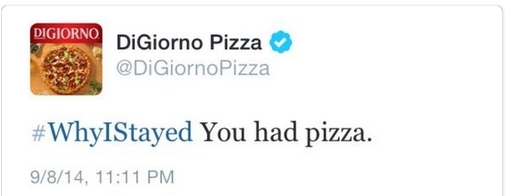 After a predictable onslaught of criticism, DiGiorno's rep did an admiral job of apologizing. The rep sent individual, customized emails to critics.
After a predictable onslaught of criticism, DiGiorno's rep did an admiral job of apologizing. The rep sent individual, customized emails to critics.
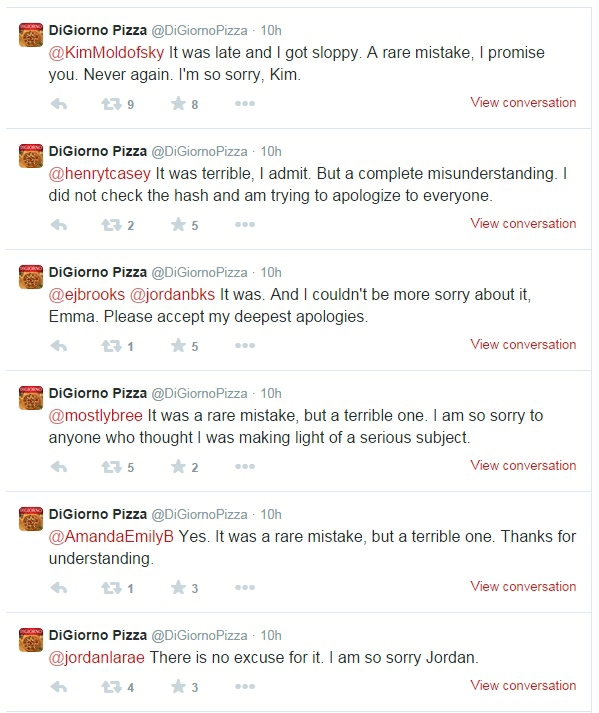 The response strategy is a great contrast to Progressive Insurance's approach a couple of years ago. In that situation, the company repeated tweets, inspiring the "robo-tweet" criticism.
The response strategy is a great contrast to Progressive Insurance's approach a couple of years ago. In that situation, the company repeated tweets, inspiring the "robo-tweet" criticism.
Discussion Starters:
- Find other examples of misused hashtags. (You'll see plenty of them.) In each case, what was the failing, and how well did the company recover?
- Evaluate each DiGiorno tweet. Why were these considered successful by AdAge and others?
NLRB Ruling on "Likes"
 The National Labor Relations Board has ruled on another social media case in which employees were terminated for posting about their employer in social media. In this case, the NLRB upheld the court decision that Triple Play Sports Bar and Grille wrongfully terminated two employees.
The National Labor Relations Board has ruled on another social media case in which employees were terminated for posting about their employer in social media. In this case, the NLRB upheld the court decision that Triple Play Sports Bar and Grille wrongfully terminated two employees.
The employees had responded to this Facebook post by a former employee:
"Maybe someone should do the owners of Triple Play a favor and buy it from them. They can't even do the tax paperwork correctly!!! Now I OWE money…Wtf!!!"
One current employee "liked" the post and another commented, "I owe too. Such an a**hole." Both were fired.
The NLRB protects employees' rights to concerted activity, meaning they can discuss issues, such as pay and working conditions, with other employees. "Mere griping" or simply bad-mouthing an employer or customers typically is not protected.
What's significant about this case is it's the first NLRB ruling that addresses and protects simply "liking" a post.
The NLRB also ruled that Triple Play's Internet/blogging policy was too broad. Employers cannot prevent employees from making any negative comments about a company online.
Discussion Starters:
- Research other cases when the the NLRB has ruled for or against an employer when an employee has posted online. What themes emerge?
- Why do you think "concerted activity" is protected? What does that mean?
Home Depot Finally Confirms Security Breach
After investigating a possible security breach since September 2, Home Depot has confirmed what could be the largest breach yet. While Target's recent incident affected 40 million customers, Home Depot's could approach 60 million.
The company has communicated with customers:
- "Message to our customers" on the website home page links to a statement in which Home Depot apologizes, tells us that which purchases were affected, and offers help.
- In an FAQ, the company tries to reassure customers and tells us about the investigation process and how we can find help.

A New York Times blog post quoted an Internet security expert: "Honestly, Home Depot is in trouble here." Eric Cowperthwaite was highly critical of the company: "This is not how you handle a significant security breach, nor will it provide any sort of confidence that Home Depot can solve the problem going forward."
I'm a little worried: I've shopped at Home Depot recently. I registered for the free AllClear protection and received this email.
Discussion Starters:
- Read Home Depot's statement and FAQs. What inspires confidence, and what makes you worry?
- The breach was discovered and reported from a third party, and it took Home Depot a week to confirm the breach. Should the management team address this in its communications somehow?
- Assess the email I received from Home Depot. Do you find it confusing?
Racist Email Causes Hawks Owner to Sell
 An email from Atlanta Hawks owner Bruce Levenson surfaced after a related investigation, causing him to sell his controlling stake in the team. The email is an assessment of operations written to General Manager Danny Ferry, and it includes pointed comments about the numbers of black people at games:
An email from Atlanta Hawks owner Bruce Levenson surfaced after a related investigation, causing him to sell his controlling stake in the team. The email is an assessment of operations written to General Manager Danny Ferry, and it includes pointed comments about the numbers of black people at games:
"Before we bought the hawks and for those couple years immediately after in an effort to make the arena look full (at the nba's urging) thousands and thousands of tickets were being giving away, predominantly in the black community, adding to the overwhelming black audience.
"My theory is that the black crowd scared away the whites and there are simply not enough affluent black fans to build a signficant season ticket base. Please dont get me wrong. There was nothing threatening going on in the arean back then. i never felt uncomfortable, but i think southern whites simply were not comfortable being in an arena or at a bar where they were in the minority. On fan sites i would read comments about how dangerous it is around philips yet in our 9 years, i don't know of a mugging or even a pick pocket incident. This was just racist garbage. When I hear some people saying the arena is in the wrong place I think it is code for there are too many blacks at the games.
"I have been open with our executive team about these concerns. I have told them I want some white cheerleaders and while i don't care what the color of the artist is, i want the music to be music familiar to a 40 year old white guy if that's our season tixs demo. i have also balked when every fan picked out of crowd to shoot shots in some time out contest is black. . . ."
Levenson is particularly criticized because he was so adamant that Donald Sterling should sell his stake in the team after he made racial comments, which were audio taped by his girlfriend. At the time, Levenson said, "I think I speak for all of my partners when I say we were all deeply offended. We all quickly spoke out against the words we heard on that tape."
Levenson apologized in a statement posted on the Hawks' website:
"I trivialized our fans by making clichéd assumptions about their interests (i.e. hip hop vs. country, white vs. black cheerleaders, etc.) and by stereotyping their perceptions of one another (i.e. that white fans might be afraid of our black fans). By focusing on race, I also sent the unintentional and hurtful message that our white fans are more valuable than our black fans."
Additional statements were posted from CEO Steve Koonin and NBA Commissioner Adam Silver. Read Silver's full statement.
Download Bruce Levenson's email.
Discussion Starters:
- Why would Levenson make such comments in an email? What assumptions did he make?
- Should Levenson have sold his stake when Donald Sterling sold his, back in May?
Latest Email Stats
The Radicati Group has published its annual email statistics report. The executive summary highlights these survey findings:
- Email is still "the most pervasive form of communication in the business world." Social networking and mobile IM, particularly, are increasing, but "email remains the most ubiquitous form of business communication."
- Most email traffic is from business; consumer email is slowing.
- Business users send and receive an average of 121 emails per day, and this number is expected to increase through 2018.
Discussion Starters:
- What, if anything, about these figures surprise you?
- How can business users manage the number of emails they send and receive? What other tools are available to them?
CEO Kicks Dog and Then Resigns
Video cameras are everywhere, so watch what you do in an elevator. The CEO of sports catering company Centerplate learned this lesson when a video of him kicking his friend's dog went viral. At one point, we see him pulling the dog up by the leash.
Desmond Hague apologized and promised to do 100 hours of community service:
"I take full responsibility for my actions, this incident is completely and utterly out of character and I am ashamed and deeply embarrassed. Under the circumstances of the evening in question, a minor frustration with a friend's pet caused me to lose control of my emotional response. Unfortunately, I acted inappropriately, and I am deeply sorry for that and am very grateful that no harm was caused to the animal. I have reached out to the SPCA and have personally apologized to the dog's owner. At this time, I would like to extend my apology to my family, company and clients, as I understand that this has also reflected negatively on them."
The apology didn't stop criticism of Centerplate, and Hague decided to resign (or was asked for his resignation). In a statement on its website, Centerplate announced Hague's resignation and temporary replacement:
Chris Verros Named Acting President and CEO Following Resignation of Desmond Hague
Centerplate's board of directors announced today that Chris Verros has been appointed to the role of acting president and chief executive officer, effective immediately, following the resignation of Desmond Hague from the company. The decision comes as a result of Hague's personal misconduct involving the mistreatment of an animal in his care.
"We want to reiterate that we do not condone nor would we ever overlook the abuse of animals," said Joe O'Donnell, chairman of the board of directors for Centerplate. "Following an extended review of the incident involving Mr. Hague, I'd like to apologize for the distress that this situation has caused to so many; but also thank our employees, clients and guests who expressed their feelings about this incident. Their voices helped us to frame our deliberations during this very unusual and unfortunate set of circumstances."
Chris Verros assumes the new role with more than 35 years of experience and a reputation as one of the industry's most respected leaders. Chief Operating Officer for Centerplate since 2010, he helped the company to achieve unprecedented growth. Prior to joining Centerplate, Verros was Executive Vice President of Boston Culinary Group and previously served as a Group President of Fine Host Corporation, following the 1993 acquisition of FanFare, Inc., a company he co-founded in 1986.
"I have been proud to work with Chris for more than 20 years, and feel that Centerplate is incredibly fortunate to have such a strong leader who can step into the role immediately," O'Donnell added, "This past week has been very difficult for our company, our employees and our clients in particular, and I have no doubt that Chris' experience, vision, integrity, and commitment to our values and mission will help us all move forward together."
Discussion Starters:
- Why would Hague resign from Centerplate? What does this incident have to do with his job performance?
- Assess Centerplate's statement: word choice, tone, organization, and so on. Comment, particularly, on how quotations are used.
Malaysia Airlines' "Bucket List" Promotion
Twitter users were out in force, criticizing Malaysia Airlines' poorly named "My Ultimate Bucket List Campaign." The promotion asks people, "What and where would you to tick off your to-do list, and explain why?" [sic]
A bucket list is commonly known as the activities people want to accomplish before they die or "kick the bucket." Within one year, Malaysia Airlines lost two planes and 537 lives.
In response to criticism, the company changed the name of the promotion to "Win an iPad or Malaysia Airlines flight to Malaysia."
The company also issued this statement:
"Malaysia Airlines has withdrawn the title of a competition running in Australia and New Zealand, as it is found to be inappropriate at this point in time. The competition had been earlier approved as it was themed around a common phrase used in both countries. The airline appreciates and respects the sentiments of the public and in no way did it intend to offend any parties."
Discussion Starters:
- Did the airline do the right thing by changing the name, or are people just too sensitive?
- What does "sic" mean, which I wrote in the first paragraph?
- Assess the airlines' apology. What rules of social media and apologies does it follow, and what could be improved?
Tesco CEO's First Email to Employees
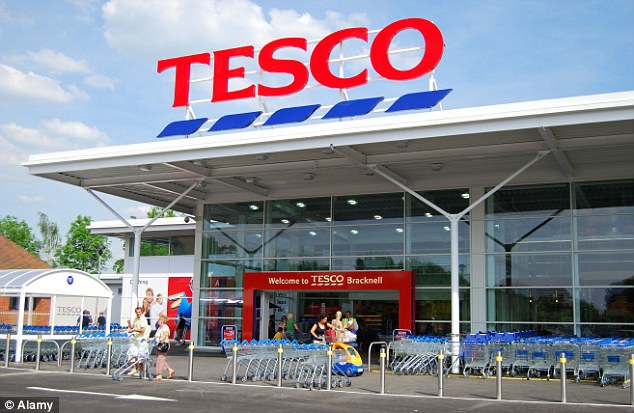 Most of us want less email, but the new CEO of Tesco, a British chain of supermarkets, wants to hear from employees directly. In his first email to the staff of more than 500,000, Lewis acknowledges issues. It's a smart move because the results are poor and obvious. Sales are down 4% through mid-August, and the stock fell 32% in the past year.
Most of us want less email, but the new CEO of Tesco, a British chain of supermarkets, wants to hear from employees directly. In his first email to the staff of more than 500,000, Lewis acknowledges issues. It's a smart move because the results are poor and obvious. Sales are down 4% through mid-August, and the stock fell 32% in the past year.
Lewis gives his background for credibility and promises to listen to customers and employees. He asks for employees' opinions: "I want to hear your thoughts and ideas. I want to hear what you think we could do differently or better." For "immediacy," he encourages employees to email him personally.
Here's Lewis' message to employees:
Dear colleagues,
Today is my first day at Tesco, and so I wanted to write to you all to tell you a bit about me, and my initial plans as I start work as your new Chief Executive.
The most important thing I want to tell you is that I couldn't be more excited to be joining Tesco. It's an honour and a privilege to be asked to lead such a world-class and important business.
As you may know, I worked for Unilever for 27 years and so I got to know Tesco well from the perspective of being one of its largest suppliers. I've always had an enormous admiration for Tesco, its people and its expertise.
I've met and worked with many Tesco people over the years, and so I know the hard work and dedication which is a hallmark of this business. I'm proud to be leading a team of half a million talented and committed people around the world. In our DNA we have always been the customers' champion, and we will be again.
You will know only too well that it has not been an easy time for our business. The retail market in all the countries where we operate has become extremely tough, and is changing faster than ever. We are losing market share in our largest market and we need to address this with urgency.
The most important thing is that we all focus on being on top of our game. We need to keep it simple and customer focused. I know periods of change can be unsettling, but we have to take our destiny in our own hands and be absolutely focused on delivering the best possible experience for our customers. She or he will reward us if we constantly put them first.
I am looking forward to getting around the business and doing a lot of listening. In my first few days I will be talking to colleagues at Welwyn and Cheshunt directly, and visiting as many of our businesses and stores as possible – listening to our customers and meeting as many of you as I can. I will also be meeting some of our shareholders and investment analysts.
I will be taking some time to get to know the business better, to understand the challenges and opportunities we face. I'll be looking at all parts of the business. Clearly we all want to see an improvement in performance, but I won't take any hasty decisions. The decisions I take will be based on what's best for customers, for shareholders, for colleagues, and hence the whole Tesco business. We have some urgent issues to deal with, but we must address these in a way which is consistent with building a long-term sustainable future.
I will always communicate openly and transparently with you and I'd like to encourage the same from you in return. I want to hear your thoughts and ideas. I want to hear what you think we could do differently or better. Hopefully we will get a chance to do this in person, but for the sake of immediacy please send any comments or ideas to me by email.
I want to pay tribute to Philip [Clarke]. Over a 40-year career in Tesco he has been a key figure in making Tesco the business it is today, and in his time as Chief Executive he has steered the business through the toughest conditions the sector has ever experienced. I would like to also thank him personally for the very professional way he has managed, and continues to manage, the transition.
These are challenging times, but we will emerge stronger. With a relentless focus on our customers and a preparedness to challenge ourselves and take bold decisions we can retain our position as the customers' champion. This is a great business made up of great people, with real expertise and I am confident that together we can succeed.
I know I can count on your support, and I'm looking forward to working with you.
Dave
Discussion Starters:
- This message was posted on Yammer, part of Tesco's intranet that is intended for employees only. What are the ethics of an employee releasing this message?
- What works well in Lewis' message, and what could be improved? If you were an employee at Tesco, how do you think you would react? What if you were an investor?
- How should Lewis respond to emails from employees? What if they become unmanageable, for example, 500 each day?
The Vest Is Back: Walmart's New Dress Code
Employees aren't too happy about Walmart's new dress code. On its website, the company gives employees options for collared navy blue or white shirts, and khaki or black pants, capris, shirts, or skorts.
In several blog posts on Walmart's intranet, HR executive Barbara Simone, explained the dress code, including the Return of the Vest:
Walmart also produced a video for employees, which has become unavailable to the public.
Employees can post comments on the intranet, and several were leaked to Gawker:
"With all due respect to the company, this is more of a financial burden to our family since this is our only source of income with my wife and two kids. We can hardly afford to live on my income now with us having to pay for a new uniform (aside from the vest). It's silly. The uniform we have now works. Why change it?"
"Working conditions at my store are atrocious. There is little coverage in any dept. to provide anything close to decent customer service. ... For ten years I gave my all but my efforts and voice are ignored. My complaints as well as other associates' seem to not matter one bit. Our registers and other equipment are slow and unreliable. I do not see how bringing back the vests as if we were living in 1994 will change anything. There are real problems to solve in our stores."
Discussion Starters:
- What's your view of the new policy? Why would Walmart implement this now?
- Imagine that you're Barbara Simone. How would you respond to these employee comments on the intranet?
Zara Apologizes for Concentration Camp Shirt
Retailer Zara has pulled a shirt that many said looked like Holocaust attire. Promoted as a "striped 'sheriff' t-shirt," the product reminded people of the Star of David and stripes (although they were vertical) worn by Jewish prisoners in concentration camps.
The company apologized in a tweet: "We honestly apologize, it was inspired by the sheriff's stars from the Classic Western films and is no longer in our stores."
Inditex, Zara's parent company, also posted a news article to provide background and apologize:
Zara Kids has removed a children's t-shirt from its stores and website. The t-shirt withdrawn was inspired by the classic American Westerns and has been taken out of circulation due to the potential similarity with the Star of David that has been used as a yellow star patch. Zara has issued a heartfelt apology on its social network profiles.
The garment was available only for just a few hours and sales of the t-shirt have been marginal. The items will be reliably destroyed.
Inditex would like to reiterate its utmost respect for all cultures and religions. The Group is a Company where people from 180 nationalities work together representing all the cultures, races and religions of the modern world. Inditex is proud of its cultural diversity. In addition, respect and dignity feature among the principles which guide and define its corporate values. The Group condemns and rejects any form of discrimination.
This isn't the first time Zara used Nazi-reminiscent images. In 2007, Zara pulled a handbag with swastikas, which the company says were made in Asia, where the image has a different cultural significance.
Discussion Starters:
- Do you believe that the shirt was an innocent mistake? Why or why not?
- Assess the parent company's message. How well does it rebuild the brand image?
- Does this news affect your decision to shop at Zara?
NFL Commissioner Changes Domestic Violence Policy
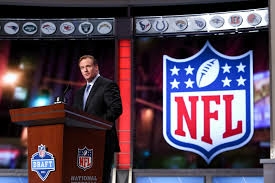 After criticism, NFL Commissioner Roger Goodell issued a 2000-word statement to change the league's domestic violence policy. Accused of assaulting his finance, Baltimore Ravens running back Ray Rice was suspended for two games.
After criticism, NFL Commissioner Roger Goodell issued a 2000-word statement to change the league's domestic violence policy. Accused of assaulting his finance, Baltimore Ravens running back Ray Rice was suspended for two games.
Backlash was fierce, with groups criticizing the punishment as too lenient-less than suspensions for some involvement with drugs.
Goodell admitted his mistake and changed the policy to six games after one incident of assault, battery, sexual assault, or domestic violence involving force. He included all employees in the policy. The New York Times describes the message sent to NFL owners as "a letter and accompanying memo" and called the change "stunning in its earnestness and clarity."
Here is excerpt from the entire message:
"At times, however, and despite our best efforts, we fall short of our goals. We clearly did so in response to a recent incident of domestic violence. We allowed our standards to fall below where they should be and lost an important opportunity to emphasize our strong stance on a critical issue and the effective programs we have in place. My disciplinary decision led the public to question our sincerity, our commitment, and whether we understood the toll that domestic violence inflicts on so many families. I take responsibility both for the decision and for ensuring that our actions in the future properly reflect our values. I didn't get it right. Simply put, we have to do better. And we will."
Discussion Starters:
- Describe Goodell's choice for a letter and memo. What were his other choices for conveying the message, and why did he choose these methods?
- Assess Goodell's letter and memo. What works well, and what could be improved? Consider the intended audiences and communication objectives.
Time Warner's Response to the Outage
Time Warner Cable had a major service outage on Wednesday morning, but the response was slow and questionable. As people throughout the country took to Twitter to report loss of Internet service, the company was quiet, and calls went unanswered.
Customers joked about how to solve the problem:
After about an hour of reported complaints, TWC tweeted about the outage:
Another hour later, TWC issued this statement:
"At 4:30 a.m. ET today, during routine network maintenance, an issue with our Internet backbone created disruption with our Internet and On Demand serices. At of 6 a.m. ET services were largely restored, as updates continue to bring all affected customers back online."
Although TWC claims the outage was caused by an Internet backbone problem, some suspect the company's system was hacked. Reports say that the outage seems more like a DDoS attack (distributed denial of service).
Discussion Starters:
- Assess TWC's response. Is it fair to say that the response was slow? Someone did tweet at 7 a.m., and maybe employees were busy working on fixing the problem?
- Analyze TWC's statement. If the outage was caused by a DDoS attack, why won't the company admit it, as so many others have?
Professor Bans Email
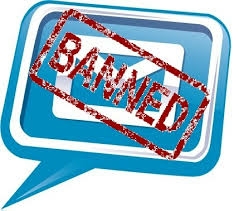 Spring-Serenity Duvall, assistant professor of communications at Salem University, got tired of responding to students' emails:
Spring-Serenity Duvall, assistant professor of communications at Salem University, got tired of responding to students' emails:
"For years, student emails have been an assault on professors, sometimes with inappropriate informality, sometimes just simply not understanding that professors should not have to respond immediately. In a fit of self-preservation, I decided: no more. This is where I make my stand!"
With her department head's approval, Duvall banned all emails from students unless they are writing to schedule a meeting with her. In her course syllabus, she explains her rationale:
"E-mail: You should only use email as a tool to set up a one-on-one meeting with me if office hours conflict with your schedule. Use the subject line "'Meeting request.' Your message should include at least two times when you would like to meet and a brief (one-two sentence) description of the reason for the meeting. Emails sent for any other reason will not be considered or acknowledged. I strongly encourage you to ask questions about the syllabus and assignments during class time. For more in-depth discussions (such as guidance on assignments) please plan to meet in person or call my office. Our conversations should take place in person or over the phone rather than via email, thus allowing us to get to know each other better and fostering a more collegial learning atmosphere."
According to Duvall, the ban has been successful: She spends less time responding to minor emails and more time talking with students on the phone or in her office. She has made one exception to the policy and allows students to email course-related content.
Discussion Starters:
- What's your view of Duvall's new policy? How would you react as a student?
- The top comment on the story was, "95% of the emails you receive as a professor can be answered by ‘read the syllabus.'" Do you agree with this statement?
Assessing 2014 Emmy Speeches
Entertainment Weekly ranked the 23 acceptance speeches from the 2014 Emmy Awards. Breaking Bad's Bryan Cranston (Lead Actor in a Drama Series) topped the list:
"It was Cranston's night. He had the perfect amount of humility ('Even I thought about voting for Matthew'), humor ('I love you, especially those scenes in bed,' he told Anna Gunn) and inspiration ('find your passion, Sneaky Petes')."
Entertainment Weekly also complimented Aaron Paul, who won for best supporting actor in Breaking Bad:
"Using his Emmy acceptance speech to express his love for Cranston and praise his wife was nice. But really, he gets this high up for having the best exit, jogging backward and pumping his trophy into the air."
Other speeches were deemed too short, too long, cute, safe, uneventful, memorable, etc.
Discussion Starters:
- Which was your favorite speech? Why?
- Watch the last couple on Entertainment Weekly's list. Is the criticism justified?
Best Buy Executives Explain Quarterly Results
 Although sales continue to decline, Best Buy executives are sticking with the plan to turn the business around primarily through cost-cutting. The company has been successful in reducing expenses, but sales continue to lag.
Although sales continue to decline, Best Buy executives are sticking with the plan to turn the business around primarily through cost-cutting. The company has been successful in reducing expenses, but sales continue to lag.
In Best Buy's second quarter results report, CEO and President Hubert Joly said,
"Like other retailers and as reflected in this quarter's performance, we continued to see a shift in consumer behavior: consumers are increasingly researching and buying online. As a result, traffic to our brick and mortar stores continued to decline, yet our in-store conversion and online traffic continued to increase due to the execution of our Renew Blue strategy which is in direct alignment with this shift. Our Renew Blue strategy is designed to (1) grow our online business; (2) enhance our in-store customer experience; and (3) leverage our multi-channel capabilities; all to deliver to our customers great advice, service and convenience at competitive prices in the channel they want to be served.
"During the quarter, we continued to make progress against this strategy, including (1) increasing our Net Promoter Score across channels by 400 basis points year-over-year; (2) improving our in-store experience by rolling out over 800 new Samsung and Sony home theater, 18 Pacific Kitchen and Home and 7 Magnolia Design Center stores-within-a-store; and (3) leveraging our new ship-from-store and digital marketing capabilities to drive a 22% increase in Domestic comparable online sales."
CFO Sharon McCollam reinforced Joly's message: "Industrywide sales are continuing to decline in many of the consumer electronics categories in which we compete."
Discussion Starters:
- Read Best Buy's entire second-quarter report. What are the key messages?
- What's your reaction to the executives' statements? Overly positive, blame-shifting, realistic, optimistic, or something else?
Ferguson PR Firm Speaks Out
The situation in Ferguson, MO, following the police shooting of Michael Brown is so tenuous that the city hired a PR firm to help. As you might expect in any emotionally charged situation, the firm has been criticized. Most of the focus has been on Common Grounds Public Relations as an all-white firm.
CEO Denise Benetele defended her firm's role, calling diversity an "industry-wide challenge" and explaining the involvement of The Devin James Group, a minority-owned firm.
Ferguson clearly needs help. In the middle of a dispute that's getting international attention, Mayor James Knowles said, "There's not a racial divide in the city of Ferguson. That is the perspective of all residents in our city. Absolutely."
|
|
||||
| Aug. 20, 2014 | ||||
| PR Firm Aiding Ferguson Responds to Industry Critics | ||||
| By Denise Bentele | ||||
|
Just as an EMT would respond to a 911 call, Common Ground PR was asked to provide immediate, emergency help in the form of fielding the overwhelming number of media inquiries the city was receiving until it assembled a long-term team to handle this crisis. Our short-term agreement to assist had nothing to do with the preceding tragic events. Rather, as we watched the news of ongoing turmoil, it was apparent that the negative images could forever impact our region's economic development efforts and the lives of our neighbors. And so we went to field calls from media around the world, trying to connect them to the appropriate sources while city leadership tended to an incredibly challenging, unfolding situation. The pace of queries was profound – like catching raindrops in a hurricane. It's not every day that a city of 21,000 residents gets more than 500 media calls in a day. It's not every day that the alphabet soup of news networks and stations ALL converge in one of the more than 90 municipalities in St. Louis County. But when all of the cameras are gone, we as St. Louisans will be left to rebuild. We will deal with companies who leave town and others who decide not to invest in St. Louis. I was dismayed at the negative reaction online and on social media, especially among fellow communications professionals, who pointed at the lack of diversity on our staff as a sign of the "greater problem." Increasing the diversity of communications professionals is an industry-wide challenge that we all need to tackle. But as a local St. Louisan who watched this tragedy unfold, I offered our assistance because it was clear that this community was overwhelmed and needed immediate help fielding media inquiries. The color of our skin reflected nothing of our concern to help our broader community respond to the watchful world. In my first conversation with Ferguson city officials, I advised that any solution to strife and development of long-term reconciliation would have to come with the assistance of a member of the black community skilled at community engagement with these key constituents. To that end, The Devin James Group, a nationally certified Minority-owned firm, has been working with St. Louis County and the City of Ferguson as an independent liaison to handle the public relations and long-term needs, work with community leaders and seek regional support in a grassroots effort to build true engagement. With the long-term coalition and communications help of CEO Devin James, local residents and businesses can focus on determining what's best for this community. Devin is currently identifying and recruiting communities and leaders to participate and assessing potential for collaborative capacity which could result in the forming of or partnering of community coalitions, creating an outreach plan for improving awareness as well as developing a platform that gives the local community an outlet to address the issues and media perceptions. We thank the many people who have shared their support and advice and we hope this helps answer questions our peers have, and hope more importantly that you send your prayers to the long-term healing of St. Louis. Denise Bentele, APR President & CEO, Common Ground Public Relations |
Discussion Starters:
- What advice would you give Mayor James Knowles?
- Did Ferguson do the right thing in hiring Common Ground?
- Assess Denise Bentele's statement. What works well, and what could be improved?
SeaWorld Tries New Approach
After denying impact on park attendance, SeaWorld is finally admitting that negative publicity about its killer whales is affecting business:
"The company believes attendance in the quarter was impacted by demand pressures related to recent media attention surrounding proposed legislation in the state of California."
The media attention began with the film Blackfish, which criticized how SeaWorld treated its orcas. Musical performers had cancelled their scheduled shows, and attendance had dropped, but revenue held steady for a while, partly because the park increased prices. Now, shares are down 30% for the year (almost 50% for the past 12 months).
After ignoring the negative publicity, SeaWorld's approach was to contradict Blackfish and other animal rights activists. Then, SeaWorld seemed to take a more proactive approach, highlighting on its Facebook page and Twitter account animals it was saving and protecting.
Now, the company has taken a new approach, spending hundreds of millions of dollars to enlarge tanks and provide exercise treadmills. SeaWorld is also committing $10 million to match funds for killer whale research.
With the headline, "Announcing BIG NEWS on the exciting future of killer whales at SeaWorld parks," an email was sent to SeaWorld customers (entire message):
Discussion Starters:
- Read SeaWorld's email to customers. Assess the design, message strategy, and organization. What works well, and what could be improved?
- What do you think about SeaWorld's viability going forward? Will the parks spring back, or are they doomed?
Read a case study about SeaWorld's Response to Blackfish. If you would like an assignment (a recommendation report) about the case, send me email (https://www.hotelschool.cornell.edu/app/facultydb/instructors/an97).





















